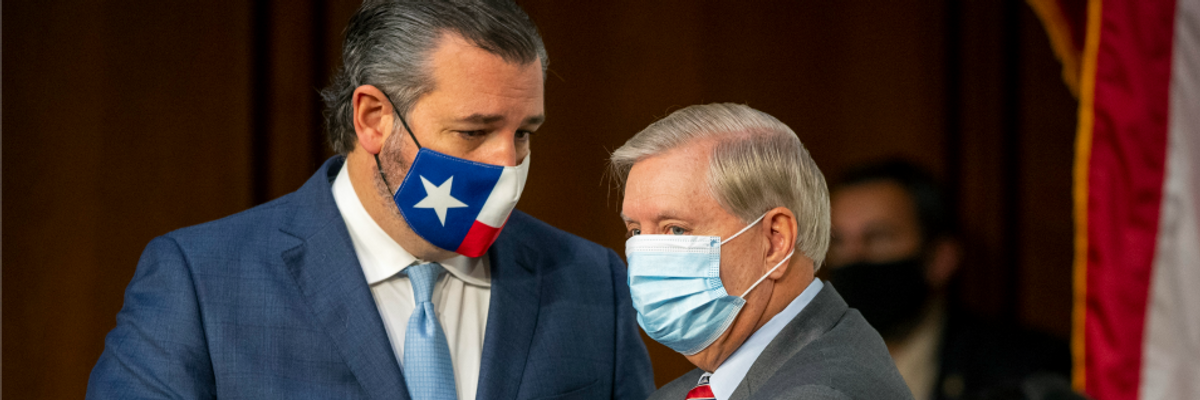A recent New York Times headline (2/11/21) announced: "House Managers Rest Their Case Against Trump, but Most Republicans Are Not Swayed."
Today (2/12/21), the paper wrote:
At times, the videos and recordings appeared to strike a chord with the Republicans in the room. Some of them even praised the work of the House managers. But it has not been enough to change their minds.
CNN's Zachary Wolf (2/10/21) wondered if "Republican senators will find their conscience changed, or vote the way Trump wants them to."
After quoting one impeachment manager's closing remarks ("if we pretend this didn't happen, or worse, if we let it go unanswered--who's to say it won't happen again?"), CNN's Maeve Reston and Stephen Collinson (2/12/21) reported:
Those words may weigh heavily on some Republican senators as this trial draws to a close over the next two days. But the initial comments from GOP senators suggest they think the Trump wing of the party is still likely to maintain firm control over the primary process in 2022.
Such reports appeared to be entirely serious--as if these were newsworthy announcements, as if the vast majority of Republican senators could have been swayed.
Times reporter Nicholas Fandos (2/8/21) argued that the second impeachment was similar to the first in that
many of the political questions are the same. Are Republicans willing to punish and cross this figure, who may have committed these acts, but who is also the most popular figure in their party and commands a huge amount of loyalty? That political dynamic is amazingly unchanged.
What was missing from so much of the impeachment coverage was any mention that many of these supposedly persuadable Republicans vocally supported the false election fraud movement--the same movement that violently stormed the Capitol on January 6--for months.
As Greg Sargent wrote in an incisive Washington Post analysis (2/11/21):
News accounts keep telling us that the Democratic impeachment managers are struggling to persuade Republicans to turn on former president Donald Trump. But there's zero reason to assume the vast majority of GOP senators are open to persuasion at all--and this formulation risks badly misleading people about the true nature of this political moment and where it is heading next....
[One] endpoint here for many Republicans will be to erase the big lie that Trump told for months from this whole terrible saga. In so doing, of course, they will be erasing their own complicity as well, since many conspired to prop up that lie for much of the same period.
Just because the Democratic impeachment managers have decided that it's strategically unwise to point out the culpability of half of the jurors in their trial doesn't mean the media must adopt the same framing. In reality, the point of the impeachment trial is to determine how history will remember Trump's anti-democratic presidency as well as the party that supported him--and media's framing today will have a powerful influence on that eventual verdict.

